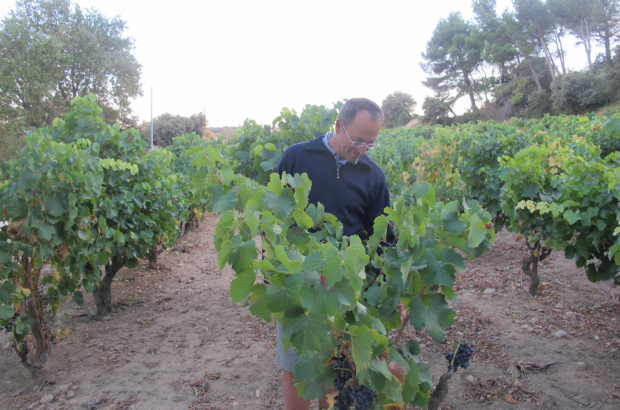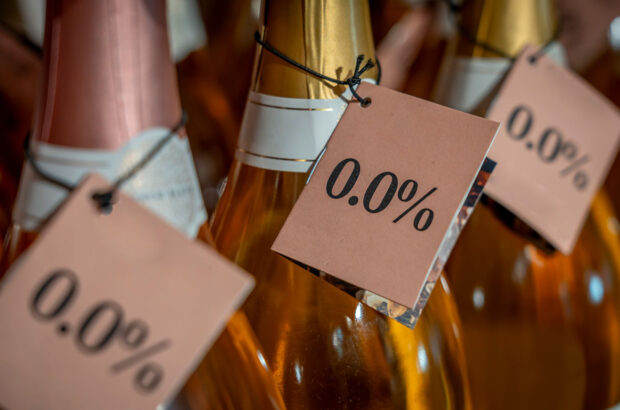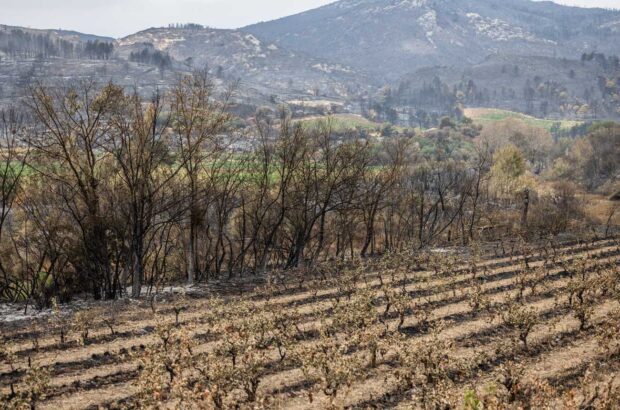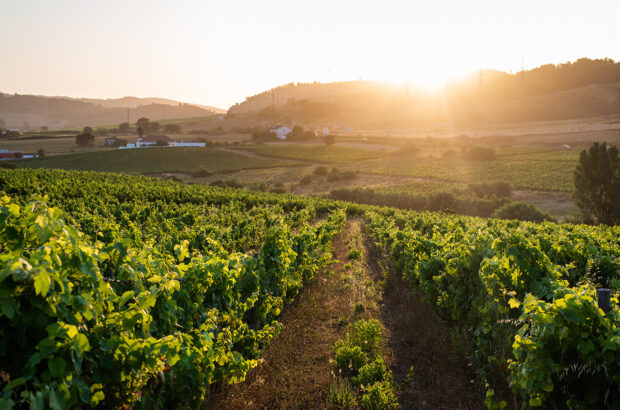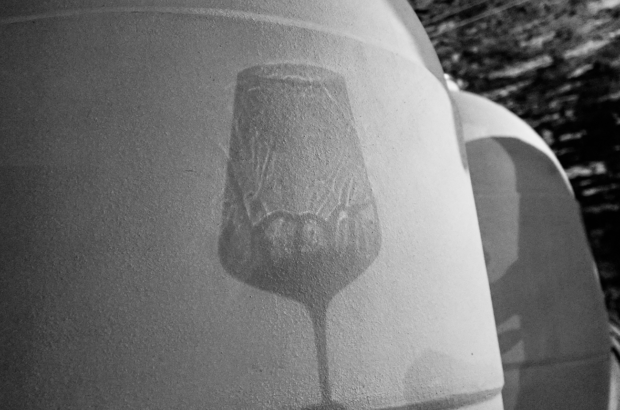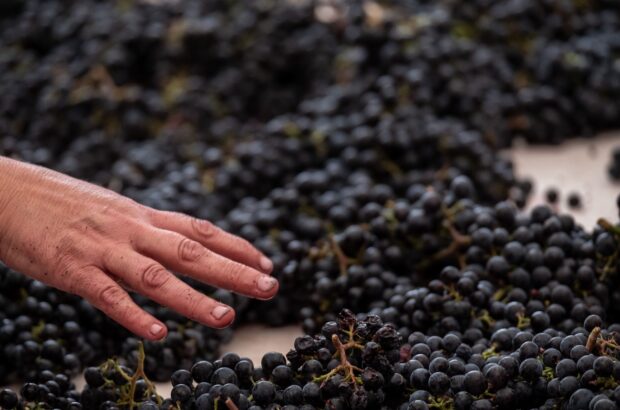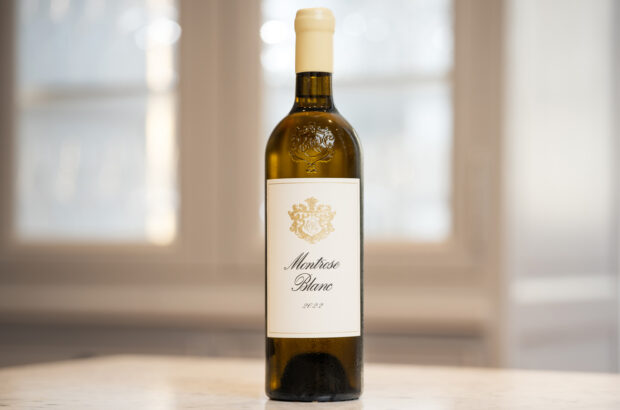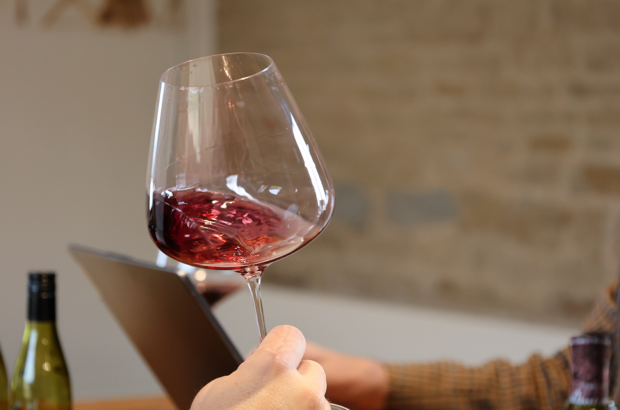Sugrue’s signature cuvée takes its name from this wistful statement – from the courage and optimism required to practice viticulture in Britain’s marginal climate. Between hungry avian friends, vineyard pests, unpredictable weather and disease, growing grapes in the UK is difficult – and harder still for those working sustainably.
According to WineGB, less than 5% of British producers are certified under its Sustainable Wines of Great Britain (SWGB) initiative, which rather begs the question: is sustainable viticulture possible in the UK?
‘There’s no perfect answer,’ says sustainability consultant Anne Jones – in part, she explains, because there’s no consensus on what ‘being sustainable’ means. The topic can be divisive and she stresses that ‘progress should be the focus. The impossibility of perfection can be a distraction (or worse, a deterrent) from doing better.’ SWGB’s certification scheme was designed with this in mind, framing sustainable viticulture around continual improvement, rather than an end goal.
As Travis Salisbury, vineyard manager at Wiston Estate in Sussex, says, UK wine-growers are ‘walking a tightrope’ between production costs and climate challenges.
According to Stephen Duckett, owner of Hundred Hills winery in Oxfordshire, sustainable growing is only viable in some locations. ‘We visited 300 possible sites before settling on Hundred Hills,’ which provides the necessary blend of free-draining soils, natural shelter and steady airflow; an elusive and expensive recipe.
For some, the answer is existential. ‘In the UK and larger global context, we simply cannot continue farming the way we do,’ say Paul Rolt and Jemma Vickers of Hebron Vineyard in Pembrokeshire. They may be at the extreme end of British viticulture, but they’ve never used chemical sprays. Instead, they work with PiWis and arbustum – vines trained up willow trees, which provide them with shelter, warmth and stability in poor weather.
Ham Street Wines’ Jules Phillips is optimistic. He argues their biodynamic and regenerative practices improve vine resilience, with better resistance to disease, pests and climate challenges. ‘We’ve not had a significant bout of botrytis in our six years of doing this,’ he says. ‘We suffer losses, but we do as well as – if not better than – traditionally farmed sites.’
Richard Woodfine of Woodfine Wine in Buckinghamshire believes the rewards outweigh the challenges. ‘It’s hard – doing everything by hand, the inability to scale up meaningfully, the general impossibility of making money from farming given the state of agriculture in the UK. We wonder why we do it… until we see our wildflower meadow, the abundance of nature, the fruits of our labour and the smiles it generates.’
So, yes, sustainable viticulture is possible in the UK, albeit with caveats. And it seems that an increasing number of producers agree that it’s worth the effort.
Sip to make a difference
Sugrue South Downs, The Trouble with Dreams, Sussex, England 2020
Score: 94
£49-£53 Butlers Wine Cellar, Chanctonbury Wines, Hedonism, Lea & Sandeman, South Downs Cellars, Sugrue South Downs, The English Wine Collection, The Sourcing Table
This traditionally fermented blend of Chardonnay and Pinot Noir is a taut bushel of Granny Smith apples and elderflower, with all the fragrant freshness of a summer morning ripe with the promise of the coming day. There’s also lemon curd on sourdough and grapefruit, while a refined, chalky acidity adds texture to the saline finish. Drink 2025-2030 Alcohol 12%





